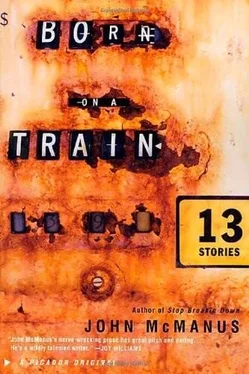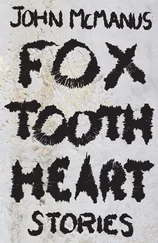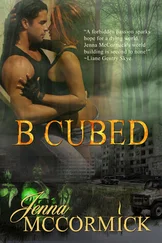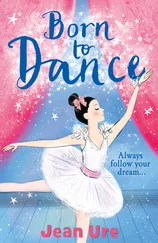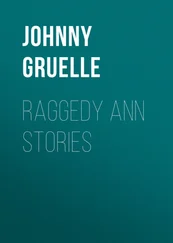When you’re a skeleton, said Wendy, you’ll be skinny enough to fit through that door.
I still won’t be able to stand up, Letitia said. My joints.
You won’t have joints. Just bones.
Letitia lifted the handle of her door. She opened it six inches until it hit the bridge’s concrete wall. Even if it could have opened farther, she knew her knees were far too weak to stand up unassisted from such a low position. Her cane was in the hatchback. She looked back toward the only door that offered them an exit, and she knew ten years had passed since she could have maneuvered through the car to reach it. Eleven years since Wendy could have done the same. She had followed her sister to stomach trouble, crippling arthritis, a cane. Wendy had pulled her down that path, she’d led the way. It was her fault. She had always been the one to end things. One day horses weren’t exciting anymore.
Last night I dreamed about you, Letitia said. I dreamed about your horse.
Which one?
The gelding. How they’d ridden him together, late at night across the dried-blood hay bales, how her only clothes were dresses, so she rode him in her underwear and how the horse bucked, and Letitia cried Stop, make him Wendy tell him to whoa. But Wendy stared and steered them forward in a loop around the muggy property to the barn where they corralled Spyglass for the night, and in the dream forever, because the barn had burned him and Katy Cruel and Falconer and Gideon to the ground and never made a sound, and in her dream Letitia couldn’t even find their bones among the ashes, but in life, on that hot October evening back in 1942, she sat with Wendy on the porch beneath a brand-new oscillating fan that Daddy’d nigger-rigged, he called it, with a hemp rope, and they played canasta, laughing. The air was wet and eerie like an endless, dismal swamp and she laughed but Daddy wasn’t laughing. Shuffle, said Letitia.
You.
You.
Letitia held the deck to her yellow dress. The paper angels didn’t bend like usual; she knew by their rigid gloss not to deal another hand. She felt the urge to pee but knew she couldn’t go inside; she felt like foreigners were racing back and forth above her head, balanced on a fleet-foot snake and Mommy came to her, not to Wendy but Letitia, chalked by all the reddle in the world and said, Which one of us? You pick which one’s to leave.
Leave where?
Here, screamed Mommy.
Are we going to the store? Letitia whispered.
A spider clambered up the railing of the porch as Daddy made his presence known by saying calmly, Keep it in the house.
This is the house.
This is the porch.
Letitia didn’t notice she was shuffling cards. Mommy wasn’t going to the store. Letitia tensed her toes as Mommy crushed the spider, as Mommy pocketed her dainty hands, and yelled, Money’s not any shorter than you are, and picked up steam each time she said, Which one, which one, which one of us, loud so Letitia never forgot again what color Mommy’s eyes were; they were green. They were from Bean Station. Daddy came from Georgia; his eyes were blue. You, Letitia whispered; her eyes were by the spider. She saw its death up close. It was a porch spider, it was as black as Daddy’s patent leather boots and if Letitia had a needle, she could spin its pool of viscous fluid into webs whose words spelled you you you, the words she spoke out loud when she imagined all the webs unspun forever by the spider.
Which you?
The you I’m looking at.
Mommy looked like she was dreaming.
You you you you you, Letitia said, because she didn’t like it when people screamed. It made her eyes go blurry. She didn’t know why they did.
Wendy never said a word till they were gone. Daddy in the house again, Mommy in the Ford, chauffered to the L&N by a lanky sharecropper named Drake. Guess what card I’m holding, Wendy said.
The four of clubs, said Letitia.
I’m not holding the cards, silly. You are.
Letitia separated suits on cedar planks. It was evil to play cards. She shuffled them till midnight when the horses slept and Wendy too and a bright pink sky hid the stars. She didn’t understand why it was pink, why it glowed like industries that wouldn’t rise for years of time to come. Daddy had said, Night; Wendy had said nothing, had slept for one last night in the bedroom Letitia shared with her. It was time to go learn ballet, tap dance, choreography, though not really. She got in trouble with a boy from town when she was thirteen, and she had to come back home. Spyglass came to be Letitia’s; he died in the barn, of stomachache. Drake and Daddy dragged him out with ropes and burned him by the creek; he smelled like engines made of worms.
In tears Letitia said, You’re supposed to bury him.
You wanna be the one to dig the hole? said Daddy.
Letitia shook her head and cried. They burned the barn at nightfall, like the dream. The cattle died of rinderpest, the chickens all were slaughtered, twenty-four of them, their necks like drinking straws. The sun was setting. The farm began to fade into the future where the world was made of steamrollers, back-hoes born in factories.
It was stupid to take your insulin before we got to the restaurant, said Wendy.
We were almost there.
It was just really so stupid.
Someone will stop.
Who? said Wendy. Who can even see us? We’re invisible.
Really? said Letitia. Her head felt funny.
Wendy rolled her eyes and mocked her: Really?
The highway men will stop.
The highwaymen? What are they gonna do, steal our purses?
Not that kind of highwaymen, Letitia said. The kind that works on highways.
This is nineteen ninety-nine, Letitia. There aren’t any highwaymen.
Letitia didn’t answer; she was sweating. She pushed her shirt inside her folds of fat to soak up the liquid. She wished the little girl would come back; she tried to map the child’s journey with her thought. Beyond the clover’s planting was the creek. She’d knelt to soak her silk bandanna in the water, she’d wrapped it round her mess of auburn hair. Water had dripped down her neck and back, under her dress. She hated dresses; she hated shoes. She was walking barefoot along the creek on red-dirt ground, burrowing her toes into the malleable clay like acorns, and she took her dress off. She rolled in mud and stood and let it cake in the breeze upon her skin and stomped on the dress like grapes fermenting in a vat and soiled it till she saw no yellow anymore. Yellow was what Nana had worn; it was a dead color, Nana was dead. The dress was a birthday present, only weeks before her death. Strokes ran in the family, just like diabetes, arthritis, diverticulosis, high blood pressure, obesity. Letitia didn’t have her stroke until the age of fifty-nine. She couldn’t talk right anymore. She walked with a duck-head cane. Wendy’s came at fifty, but it didn’t cause much damage; it only made her tired. She looked older afterwards, and her mouth hung slack. Only the women in their family had these problems. The men were tall and strong and healthy.
Carrot comes home from work this way, Letitia said.
He’s retired, Wendy said. Four years now.
Four years?
It wouldn’t matter. He worked the night shift.
Maybe he’ll drive by anyway.
We don’t know what kind of car he drives. He doesn’t know this car.
Maybe he’s out shopping.
Maybe.
Letitia strained her neck to look for the girl. Their custard-colored Cavalier was so much lower than the rigs and SUVs that shook their car and nearly sideswiped Wendy’s door they came so close, thrice per second in this heavy traffic.
You have to try again to squeeze out, Wendy said.
I can’t.
Try.
She pushed her door six inches open and slammed it shut again, then repeated these motions. She was thirsty. She weighed two hundred and fifty pounds, and her throat was closing up. She didn’t want to talk anymore. You’re fading, Wendy said, but what was really fading was the freeway; lanes and traffic patterns shifted. Translucent tractor-trailers displaced air opaque with the fog and sleet and smoke of sixty years, and then it cleared. She saw green grass and trees. The air tasted fresh upon her tongue. Her mud-daubed counterpart was on a grassy knoll and climbing to the chicken wire; she crossed it, she wore her dirty dress around her head wrapped like the turban of a sheik, and a cut was bleeding on her arm. She had a drink in hand, and when she sipped its sugary fluid Letitia gasped; her throat was tightening. She couldn’t breathe right. It was Nehi orange. The ghosts of Fords and Buicks angled through her field of vision; she couldn’t breathe, she couldn’t talk but she could move again, she could float up to a sweeping panorama where the child held corncob dolls and sat upon a stump atop a hill. Letitia remembered everything about that stump; it was an elm struck down by lightning in a summer storm. Its trunk had formed a bridge across a murky stream to another hillside. She didn’t see it now. The child made the voices of her toys.
Читать дальше
